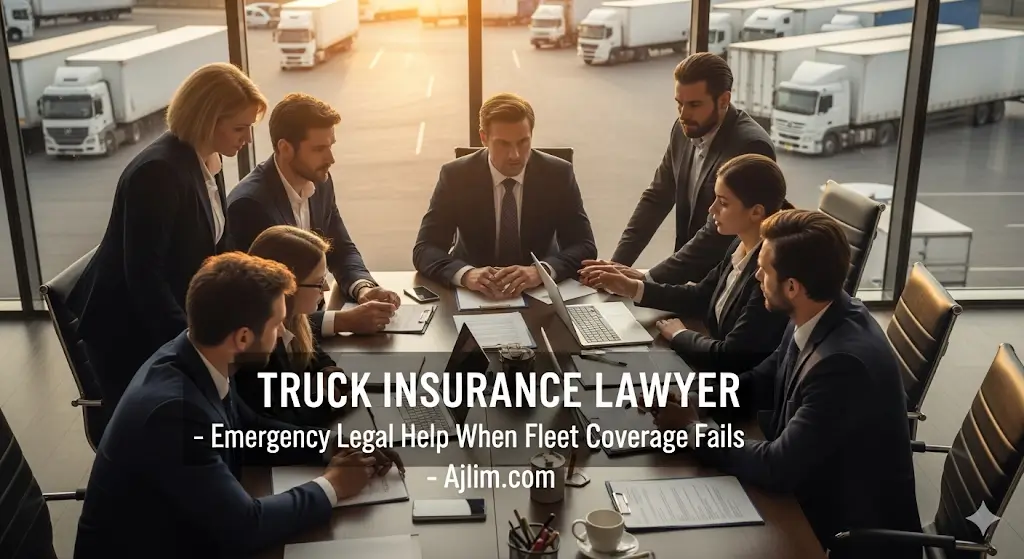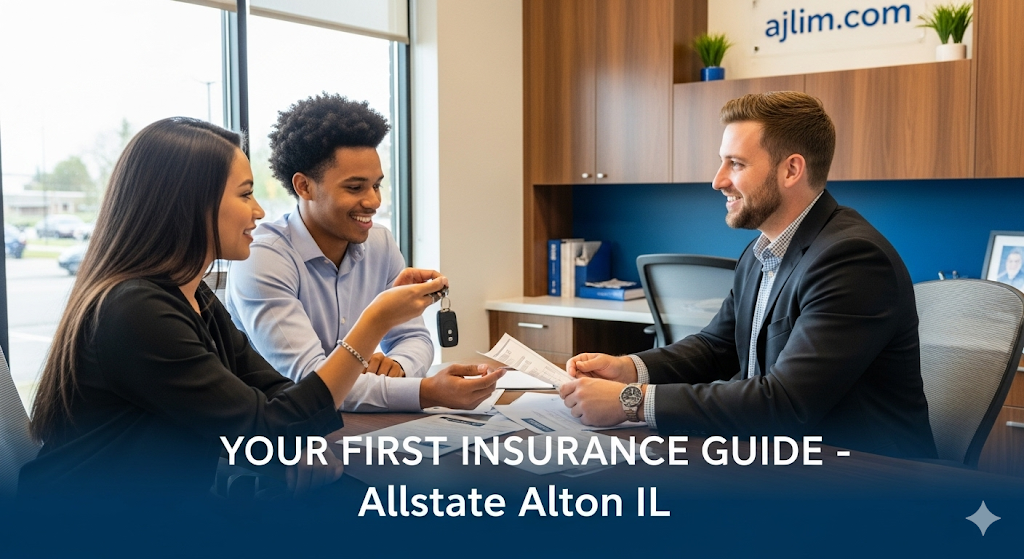Truck insurance lawyer services become absolutely critical when your fleet faces insurance disputes that could destroy your business overnight. As a trucking company owner or fleet manager, you’ve likely spent years building relationships with drivers, securing contracts, and maintaining vehicles—only to discover that your insurance coverage fails you precisely when you need it most. When insurance companies deny legitimate claims, cancel policies without warning, or leave you exposed during major accidents, specialized legal intervention isn’t just helpful—it’s essential for business survival.
The commercial trucking industry operates on razor-thin margins where a single unresolved insurance dispute can force companies into bankruptcy within weeks. Unlike standard auto insurance issues, truck insurance problems involve complex federal regulations, multiple liability layers, and coverage amounts that can reach millions of dollars. When these high-stakes situations go wrong, general practice attorneys simply lack the specialized knowledge needed to protect your fleet business effectively.
When Trucking Companies Need a Truck Insurance Lawyer Immediately
Insurance Claim Denials That Threaten Your Business

Insurance claim denials represent one of the most immediate threats to trucking company survival. Your insurer might deny a claim citing driver negligence, maintenance issues, or policy violations that you believe are unfounded. These denials often occur after major accidents involving significant property damage, injuries, or fatalities—exactly when your business faces the greatest financial exposure.
Common denial scenarios include insurers claiming your driver was operating outside policy parameters, alleging that required safety inspections weren’t properly documented, or arguing that cargo wasn’t secured according to policy specifications. Each of these denials can leave your company facing six or seven-figure liability exposure while your insurance company collects premiums without providing promised protection.
A truck insurance lawyer immediately begins investigating these denials, gathering evidence that contradicts the insurer’s position, and applying legal pressure to reverse unjustified claim rejections. Time becomes critical because third-party claimants won’t wait for your insurance dispute to resolve—they’ll pursue your company assets directly.
Coverage Gaps Discovered After Major Accidents
Nothing devastates a fleet operation faster than discovering coverage gaps after a serious accident has already occurred. You might learn that your policy doesn’t cover specific cargo types you’ve been hauling, that your liability limits are insufficient for the damages involved, or that certain driver classifications aren’t properly covered under your commercial policy.
These gaps often emerge because insurance brokers failed to properly assess your operation’s risks, policy language contained ambiguous exclusions, or your business operations evolved beyond your original coverage parameters without proper policy updates. Meanwhile, accident victims and their attorneys are already building cases against your company, regardless of your insurance complications.
Legal intervention helps by immediately analyzing your policy language, identifying potential coverage arguments that favor your position, and negotiating with insurers to honor coverage they should have provided. Attorneys can also work to minimize your direct liability exposure while insurance coverage issues are being resolved.
Policy Cancellations During Active Claims
Insurance companies sometimes attempt to cancel trucking policies while claims are pending, leaving fleet operators in an impossible position. They might cite late payments, alleged safety violations, or claim that you misrepresented information during the application process. These cancellations can occur even when you’ve been paying premiums faithfully and operating within all policy requirements.
Mid-claim cancellations create immediate operational crises because trucking companies cannot legally operate without proper insurance coverage. Your drivers can’t work, contracts get cancelled, and revenue stops flowing while your legal and financial obligations continue mounting. State authorities might also suspend your operating authority if you cannot prove continuous coverage.
A specialized attorney can often prevent or reverse these cancellations by challenging the insurer’s legal grounds, negotiating temporary coverage extensions, or securing alternative coverage while disputes are resolved. Quick legal action is essential because even brief coverage lapses can have devastating business consequences.
Critical Insurance Disputes That Require Legal Intervention
Liability Coverage Limitations in Multi-Vehicle Accidents
Multi-vehicle accidents involving commercial trucks often result in complex liability determinations that can overwhelm standard insurance coverage. When your truck is involved in a chain-reaction accident affecting multiple vehicles, determining primary liability becomes complicated, and total damages can quickly exceed policy limits. Insurance companies frequently try to shift maximum liability onto trucking companies, arguing that commercial vehicles bear primary responsibility regardless of actual fault circumstances.
These situations require immediate legal analysis because multiple insurance companies will be investigating simultaneously, each trying to minimize their client’s liability exposure. Without proper legal representation, your insurer might accept liability percentages that far exceed your driver’s actual fault, leaving your company exposed for damages beyond your coverage limits.
Truck insurance lawyers understand how to coordinate with accident reconstruction experts, challenge unfair liability determinations, and negotiate with multiple insurance companies to ensure fair fault allocation. They also work to maximize coverage from all available sources, including umbrella policies and other drivers’ insurance coverage.
Cargo Insurance Claim Rejections
Cargo insurance disputes can devastate trucking companies because cargo values often represent substantial financial exposure. Insurers might deny cargo claims by alleging improper loading procedures, inadequate security measures, or arguing that damage occurred outside covered policy periods. These denials force trucking companies to compensate shippers directly, often for damages they didn’t cause.
Common cargo insurance disputes involve temperature-controlled shipments where insurers claim refrigeration failures weren’t properly documented, theft situations where insurers argue security procedures weren’t followed, or damage claims where insurers allege inadequate packaging or loading. Each dispute requires detailed evidence analysis and specialized knowledge of cargo insurance law.
Legal intervention helps by immediately securing evidence, challenging insurer investigations, and negotiating fair claim resolutions. Attorneys can also review your cargo insurance policies to identify coverage arguments that favor your position and ensure all available coverage sources are properly utilized.
Workers’ Compensation Disputes for Driver Injuries
Driver injury cases create unique complications for trucking companies because determining workers’ compensation coverage can be complex, especially with owner-operators and independent contractors. Insurance companies might dispute whether injured drivers qualify for coverage, argue that injuries occurred outside work-related activities, or claim that pre-existing conditions aren’t covered under current policies.
These disputes often involve significant medical expenses, lost wage claims, and potential permanent disability payments that can financially devastate smaller trucking operations. Meanwhile, injured drivers may pursue additional legal action if workers’ compensation coverage is denied, creating multiple liability exposures for your company.
Specialized legal help ensures proper workers’ compensation claim handling while protecting your company from additional liability exposure. Attorneys can also review your driver classification procedures to prevent future coverage disputes and ensure compliance with state workers’ compensation requirements.
How a Specialized Truck Insurance Lawyer Protects Your Fleet Business
Immediate Damage Control Strategies
When insurance crises strike your trucking business, immediate damage control becomes essential for preventing total business collapse. A specialized attorney begins by analyzing your immediate legal exposure, identifying all available insurance coverage sources, and implementing strategies to minimize financial damage while disputes are being resolved.
These damage control efforts might include negotiating payment deferrals with creditors, securing temporary insurance coverage, communicating with regulatory authorities to maintain operating permits, and managing media relations to protect your company’s reputation. Attorneys also work to prevent asset seizures and ensure your business can continue operating during extended legal proceedings.
Quick legal intervention often means the difference between surviving an insurance crisis and losing everything you’ve built. Specialized attorneys understand trucking industry cash flow requirements and work to maintain business continuity while resolving underlying insurance disputes.
Negotiating with Insurance Companies Under Pressure
Insurance companies often use time pressure and financial stress to force unfavorable settlements with trucking companies facing coverage disputes. They know that fleet operators cannot sustain lengthy legal battles while meeting payroll, maintaining equipment, and covering operational expenses. This pressure frequently results in trucking companies accepting inadequate settlements just to resolve immediate financial crises.
Experienced truck insurance lawyers level the playing field by handling all insurer communications, applying legal pressure for fair claim handling, and refusing to accept inadequate settlement offers. They understand insurance company tactics and can identify when insurers are negotiating in bad faith or violating regulatory requirements.
Legal representation also prevents trucking company owners from making statements or decisions that could compromise their legal position. Insurance adjusters are trained to gather information that supports claim denials, and unrepresented business owners often inadvertently provide evidence that insurers use against them later.
Preventing Business Shutdown During Legal Battles
Extended insurance disputes can force trucking companies into bankruptcy even when they ultimately prevail in legal proceedings. Legal costs, operational disruptions, and cash flow interruptions create financial stress that many fleet operations cannot survive, regardless of their legal position’s strength.
Specialized attorneys work to expedite dispute resolution through negotiation, mediation, or expedited legal proceedings that minimize business disruption. They also help identify alternative funding sources, negotiate with lenders and creditors, and implement cost-saving measures that preserve business viability during legal battles.
Some attorneys also work on contingency fee arrangements for certain types of insurance disputes, reducing immediate legal cost pressure on struggling trucking companies. This approach allows fleet operators to pursue legitimate claims without depleting operating capital needed for business survival.
Red Flags That Signal You Need Legal Help Now
Insurance Company Delay Tactics
Insurance companies sometimes use deliberate delay tactics to pressure trucking companies into accepting unfavorable claim resolutions. These delays might involve repeated requests for additional documentation, scheduling conflicts that postpone claim reviews, or transferring claims between different adjusters to restart investigation timelines.
Recognizing these delay tactics is crucial because trucking companies face ongoing operational expenses and liability exposure while claims remain unresolved. Every day of delay increases financial pressure and reduces your negotiating leverage with insurance companies and third-party claimants.
Legal intervention stops these delay tactics by imposing legal deadlines, threatening bad faith litigation, and escalating disputes to insurance company management levels. Attorneys can also file regulatory complaints that force insurers to expedite claim handling or face regulatory penalties.
Unreasonable Settlement Offers
Insurance companies often make initial settlement offers that are far below legitimate claim values, hoping that financial pressure will force trucking companies to accept inadequate compensation. These lowball offers might cover only a fraction of actual damages, ignore business interruption losses, or exclude coverage for ongoing liability exposure.
Unreasonable offers become particularly problematic when trucking companies face immediate cash flow crises and feel pressured to accept any available settlement. However, accepting inadequate settlements often fails to resolve underlying problems while eliminating your legal rights to pursue full compensation later.
Experienced attorneys can immediately evaluate whether settlement offers are reasonable by comparing them to similar cases, analyzing your total damages, and assessing your legal position’s strength. They also understand how to negotiate effectively with insurance companies to secure fair compensation for your losses.
Third-Party Lawsuits Against Your Company
When third parties file lawsuits against your trucking company while insurance coverage disputes remain unresolved, you face the nightmare scenario of fighting legal battles on multiple fronts simultaneously. These lawsuits can result in judgments against your company that exceed available insurance coverage, especially if coverage disputes prevent insurers from providing proper legal defense.
Third-party lawsuits also create time pressures because court deadlines don’t wait for insurance disputes to resolve. Failing to respond properly to legal proceedings can result in default judgments that hold your company liable for damages regardless of actual fault circumstances.
Legal representation coordinates defense strategies across all pending legal proceedings while working to resolve insurance coverage disputes that affect your defense options. Attorneys can also negotiate with third-party claimants to prevent additional legal complications while insurance issues are being resolved.
Choosing the Right Truck Insurance Attorney for Crisis Situations
Experience with Commercial Vehicle Insurance Law
Commercial truck insurance law involves complex federal regulations, specialized policy provisions, and industry-specific legal precedents that differ significantly from standard auto insurance law. Attorneys without specific trucking industry experience often miss critical legal arguments and coverage opportunities that could protect your business.
Look for attorneys who regularly handle commercial vehicle insurance disputes, understand Federal Motor Carrier Safety Administration regulations, and have experience with the unique insurance products used in the trucking industry. They should also understand how trucking business operations affect insurance coverage and liability exposure.
The right attorney will immediately understand your industry’s challenges and can provide practical legal advice that considers your operational requirements and business limitations. They should also have relationships with trucking industry experts who can provide technical support for complex legal cases.
Track Record in Fleet-Related Disputes
A proven track record in fleet-related insurance disputes demonstrates an attorney’s ability to handle the complex legal issues that trucking companies face. Look for attorneys who have successfully resolved cases similar to your situation and can provide specific examples of favorable outcomes for trucking company clients.
Ask potential attorneys about their experience with insurance bad faith claims, coverage dispute litigation, and negotiations with major commercial insurance companies. They should also have experience working with trucking industry experts, accident reconstruction specialists, and other professionals needed for complex cases.
The best attorneys will be transparent about their success rates, average case resolution times, and typical outcomes for cases similar to yours. They should also explain their fee structures and provide realistic expectations about likely case outcomes.
Availability for Emergency Consultations
Trucking insurance crises often develop rapidly and require immediate legal intervention to prevent irreversible damage to your business. The right attorney should offer emergency consultation services and be available to respond quickly when time-sensitive situations develop.
Look for attorneys who understand trucking industry time pressures and can provide immediate guidance when insurance companies deny claims, cancel policies, or create other urgent legal situations. They should also have systems in place to handle emergency situations outside normal business hours.
The best truck insurance lawyers maintain ongoing relationships with trucking company clients, providing preventive legal advice that helps avoid crises while remaining available for emergency situations when they inevitably arise.
FAQ: Urgent Questions About Truck Insurance Legal Issues
How quickly should I contact a lawyer after an insurance claim denial?
You should contact a truck insurance lawyer immediately after receiving a claim denial, ideally within 24-48 hours. Insurance companies often impose strict deadlines for appeals, and delayed responses can permanently eliminate your legal options. Quick action also prevents you from inadvertently damaging your legal position through communications with insurers.
Kin Insurance Reddit Reviews: What Real Customers Are Actually Saying in 2025
Can a lawyer help if my insurance company cancels my policy mid-claim?
Yes, attorneys can often prevent or reverse mid-claim policy cancellations by challenging the legal grounds for cancellation and negotiating with insurance companies. Even if the cancellation cannot be reversed, legal help can secure alternative coverage and minimize business disruption during the transition.
What should I do if my insurance coverage seems insufficient after a major accident?
Immediately contact a specialized attorney to analyze all available coverage sources, including umbrella policies, cargo insurance, and other drivers’ insurance coverage. Don’t accept your insurer’s initial coverage assessment without independent legal review, as additional coverage sources are often overlooked.
How much does truck insurance legal help typically cost?
Many truck insurance lawyers work on contingency fees for certain types of cases, meaning you pay only if they recover money for you. Other cases might involve hourly billing or flat fees. Most attorneys offer free initial consultations to evaluate your case and explain fee structures before you commit to legal representation.



